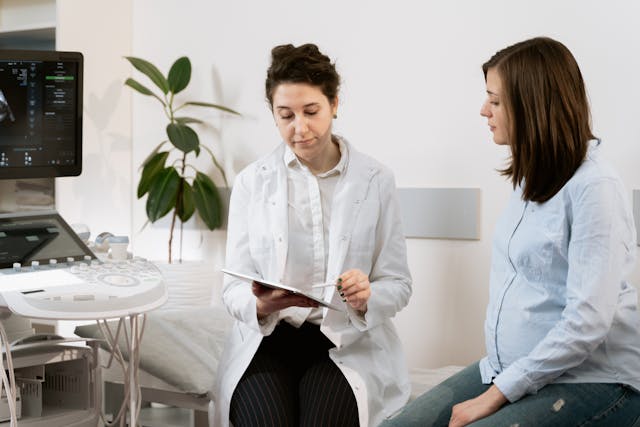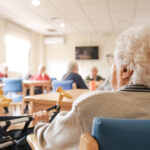Lucy Mulloor’s life was turned upside down in an instant. One morning, the 45-year-old single mother awoke with the terrifying realisation that something was wrong. Though she could hear her two daughters in the kitchen, she couldn’t call out to them. Her voice was gone, and she couldn’t move the right side of her body. Desperate to alert them, she edged herself off the bed and onto the floor, hoping the sound would draw their attention. Her eldest daughter called 911, and soon after, Mulloor learned she had suffered a massive stroke during the night. She would spend the next five months in hospital recovering from the devastating event.
The diagnosis came as a complete shock to Mulloor. “Hearing I’d had a stroke was a complete surprise,” she recalls. “At the time, I was hiking regularly and doing yoga and Zumba. My blood pressure and blood sugar levels were in the healthy range.” The stroke left her with aphasia, a condition that affects a person’s ability to speak, write, and understand language. Aphasia can be isolating and frustrating, as it robs individuals of the ability to express themselves and engage fully in conversation. The condition was particularly distressing for Mulloor, whose speech was essential to her identity and daily life.
Mulloor enrolled in a research study at the University of Calgary led by Dr. Sean Dukelow, MD, PhD, to regain her communication abilities. The study explored whether transcranial magnetic stimulation (TMS)—a non-invasive technique that uses magnetic fields to stimulate nerve cells in the brain—could support recovery from post-stroke aphasia when combined with intensive speech therapy. “We are very excited by the promising results of this non-invasive therapy,” said Dukelow, a professor at the Cumming School of Medicine and principal investigator on the study. “We specifically recruited participants who were at least six months post-stroke, because there is so little data on long-term recovery. Our findings show that the brain can still heal and adapt—even years later.”
The study included 44 participants in a double-blind, sham-controlled, randomised trial. Everyone received two weeks of intensive speech therapy, but only one group received active TMS; the other group underwent a placebo. Neither the participants nor the clinicians knew which group anyone belonged to. The therapy sessions consisted of more than three hours a day of repetitive language exercises grounded in multimodality aphasia therapy (M-MAT), which included reading, writing, drawing, and speaking. Shannan Love, R.SLP, was the lead speech-language pathologist involved in the study. “We saw remarkable functional gains in many of the participants,” she said. “Although I didn’t know who was receiving real stimulation, there were times I could guess based on the improvements.”
Love also noted that participants reported changes beyond the study’s measure. Alongside speech improvements, individuals shared that their confidence had grown, their moods had lifted, and some even noticed new movements in their hands or arms. These unexpected effects speak to the broader potential of combining TMS with focused therapy. The study’s first author, Trevor Low—an MD/PhD candidate in the Leaders in Medicine programme—expressed particular excitement over the fact that all participants, even those who received the sham treatment, experienced some level of speech improvement. “The gains were modest in the sham group, but in the TMS group, they were significant,” he said. “It’s remarkable to see that the brain retains the ability to rewire and adapt so long after injury.”
Mulloor, who joined the study three years after her stroke, has since noticed substantial progress in her ability to retrieve words and speak fluently and confidently. After the study concluded, researchers confirmed that she had received the real TMS treatment. Her participation not only improved her speech but also offered her renewed hope. “I feel like I’ve got a piece of myself back,” she shared. Her story and the study’s findings reinforce the message that stroke recovery has no expiry date. With the proper support, therapy, and innovative tools like TMS, regaining lost abilities may be possible even years after a stroke.
More information: Sean Dukelow et al, Transcranial Magnetic Stimulation Combined With Multimodality Aphasia Therapy for Chronic Poststroke Aphasia, Neurology. DOI: 10.1212/WNL.0000000000213424
Journal information: Neurology Provided by University of Calgary








